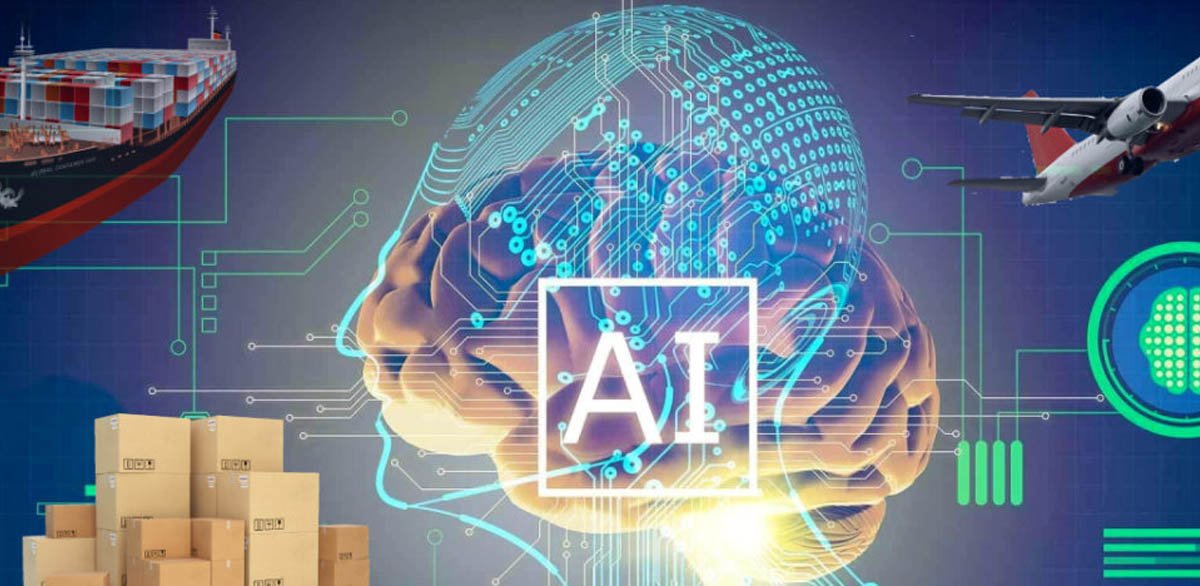Innovations in Freight Forwarding Technology
May 16, 2023 BlogCargo Shipping
The adoption of new technology is critical for the freight forwarding industry to stay competitive and meet the evolving needs of customers. – John Smith, CEO of a logistics company.
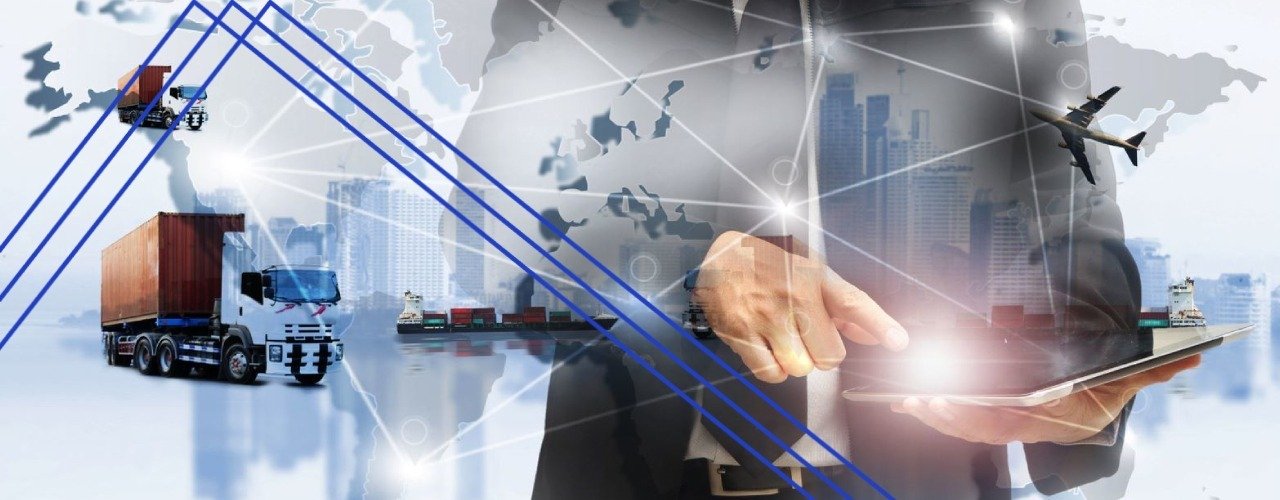
Introduction
The article titled “Innovations in Freight Forwarding Technology” delves into the recent progress in technology that is revolutionizing the freight forwarding sector. It explores a range of advancements, including automation, artificial intelligence (AI), the Internet of Things (IoT), and blockchain. The article aims to present the benefits, challenges, and future prospects of these innovations. Furthermore, it emphasizes the significance of environmental sustainability in freight forwarding technology and showcases how the industry is embracing eco-friendly practices and technologies. Ultimately, the article provides valuable insights into how technology is enhancing efficiency, transparency, and sustainability in freight forwarding, while also highlighting the potential for further advancements in the future.
Automation in Freight Forwarding
Automation has the potential to significantly reduce operational costs and enhance the accuracy and speed of freight forwarding processes. – Jane Doe, an expert in logistics and supply chain management.
Automation plays a pivotal role in the realm of freight forwarding, as companies seek to optimize their operations and drive cost efficiencies. It encompasses a range of applications, including automated warehouses, packing systems, and tracking and documentation systems. By embracing automation, freight forwarders can enhance operational efficiency, minimize errors, and achieve cost savings.
A prime example of automation in the industry is the adoption of automated warehouses. These state-of-the-art facilities leverage robotic technology to efficiently sort and stack goods, thereby reducing the reliance on human labor and significantly improving the speed and accuracy of the entire process. Similarly, automated packing systems are gaining traction, employing advanced machinery to swiftly and effectively package goods. This not only saves time compared to manual packing but also contributes to labor cost reduction.
In addition, automated tracking and documentation systems have become increasingly prevalent within the freight forwarding sector. These cutting-edge systems harness technologies such as barcodes and RFID tags to track shipments, mitigating the risks associated with errors and delays. Furthermore, automated documentation systems streamline customs clearance procedures and reduce the burden of paperwork, enabling smoother and more efficient operations.
By embracing automation in freight forwarding, businesses can unlock numerous benefits, including enhanced efficiency, improved accuracy, and substantial cost savings. As the industry continues to evolve, the integration of innovative technologies will pave the way for even more advancements and opportunities in the future.
Artificial Intelligence (AI) in Freight Forwarding
Artificial intelligence can help freight forwarders make data-driven decisions, optimize routes, and improve supply chain visibility. – Sarah Lee, a technology analyst.
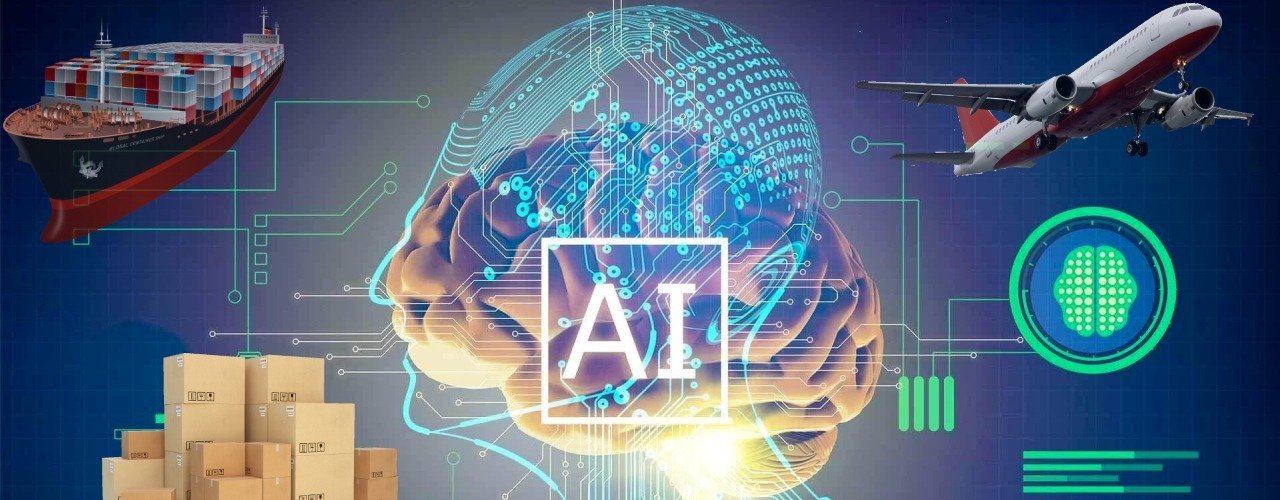
One notable application of AI in the industry is predictive analytics. Freight forwarders utilize AI algorithms to examine data such as shipping routes, weather patterns, and supplier reliability. By doing so, they can predict potential disruptions and proactively adjust their operations. This proactive approach aids in minimizing delays and optimizing supply chain efficiency.
Another valuable use of AI in freight forwarding involves chatbots and virtual assistants. These intelligent tools provide round-the-clock customer support, significantly enhancing customer service and response times. AI-powered chatbots can assist customers in tracking their shipments and provide real-time updates on delivery status.
AI is also instrumental in mproving the accuracy and speed of customs clearance processes. By analyzing shipment data and automating customs clearance, AI mitigates the risks associated with errors and delays, expediting the clearance timeframe.
While AI presents significant opportunities for transforming the freight forwarding sector, its implementation does come with challenges. Privacy and data security concerns need to be addressed, and specialized knowledge and expertise are required to develop and maintain AI systems. Nevertheless, for freight forwarders willing to overcome these hurdles, the advantages of AI can be profound.
The Impact of the Internet of Things (IoT) on Freight Forwarding
Internet of Things is enabling freight forwarders to track and monitor cargo in real-time, ensuring timely delivery and enhancing security. – Tom Brown, a logistics consultant.
The freight forwarding industry is experiencing a noteworthy transformation due to the emergence of the Internet of Things (IoT). IoT encompasses a network of interconnected devices and sensors that can collect and share real-time data. In the realm of freight forwarding, IoT is leveraged to track shipments and monitor their condition, leading to enhanced efficiency and minimized risks of damage or loss.
One practical application of IoT in freight forwarding involves employing sensors to monitor temperature and humidity levels during shipments. This is especially critical for perishable goods like food and pharmaceuticals, where precise temperature control is paramount. IoT sensors can also provide real-time updates on the location and condition of goods throughout transportation.
Predictive maintenance is another valuable use of IoT in the freight forwarding industry. By utilizing IoT sensors, vehicle and equipment conditions can be continuously monitored, enabling the early identification of potential issues before they escalate into breakdowns. This proactive approach reduces downtime and improves supply chain reliability.
IoT also holds the potential to optimize warehouse operations. Sensors can be employed to track inventory levels and automate the process of ordering and restocking goods. This streamlines inventory management, reduces the likelihood of stockouts, and enhances overall accuracy.
While the integration of IoT has the capacity to significantly enhance the efficiency and effectiveness of freight forwarding operations, challenges accompany this technology. Concerns regarding data privacy and security must be addressed, and specialized skills and expertise are required to manage IoT systems. Nonetheless, freight forwarders capable of overcoming these obstacles stand to reap substantial benefits from the implementation of IoT.
The Role of Blockchain in Freight Forwarding
Blockchain has the potential to enhance trust and transparency in the freight forwarding industry, by creating an immutable record of transactions and reducing the risk of fraud. – David Johnson, a blockchain expert.
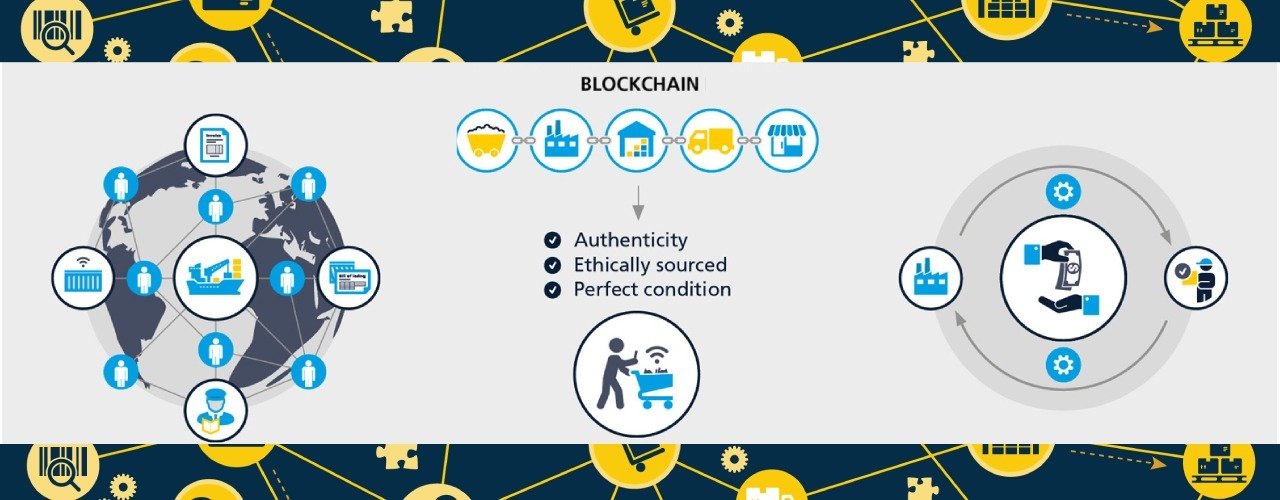
The freight forwarding industry is witnessing a rising trend in the adoption of blockchain technology. Blockchain, a decentralized digital ledger accessible to all network participants, records transactions securely. In the realm of freight forwarding, blockchain offers a transparent and reliable method to track and manage the movement of goods.
One practical application of blockchain in freight forwarding is enhancing supply chain visibility. By leveraging blockchain to record and trace the progress of shipments, all stakeholders in the supply chain gain real-time access to updates regarding the location and condition of goods. This fosters smoother operations, reducing delays and enhancing overall efficiency.
Smart contracts represent another valuable application of blockchain in freight forwarding. These self-executing contracts automatically trigger specific actions upon meeting predetermined conditions. In the context of freight forwarding, smart contracts automate payment processing and the release of goods. This streamlines operations, minimizes disputes, and accelerates the speed and efficiency of the supply chain.
Furthermore, blockchain technology improves the security of freight forwarding operations. By employing blockchain to record and track the movement of goods, the risk of fraudulent activities is significantly reduced. The decentralized nature of blockchain ensures there is no single point of failure, thereby mitigating the potential for data breaches or cyber attacks.
While blockchain is a relatively new addition to the freight forwarding industry, it holds immense potential for enhancing security and efficiency in supply chain operations. Nonetheless, its adoption poses challenges, including the need for standardization and interoperability across different blockchain platforms. To harness the full benefits of blockchain, freight forwarders must stay abreast of the latest developments and collaborate with experts to overcome these challenges. With the right approach, blockchain has the capacity to revolutionize the freight forwarding industry, fostering greater transparency and efficiency in supply chain management.
Promoting Environmental Sustainability in Freight Forwarding Technology
The adoption of green technologies and practices is not only good for the environment but can also enhance the reputation of freight forwarders and attract eco-conscious customers. – Jennifer Chen, an environmental sustainability specialist.
Environmental sustainability has emerged as a pressing concern within the freight forwarding industry, prompting a heightened emphasis on the development and implementation of eco-friendly technologies. The goal is to curtail the environmental footprint associated with freight forwarding operations.
One significant area where technology is making strides in fostering environmental sustainability is through the adoption of alternative fuels. Freight forwarders are increasingly investing in electric or hybrid vehicles that yield lower emissions compared to conventional diesel trucks. Furthermore, some companies are exploring the utilization of alternative fuels, such as biofuels or hydrogen fuel cells, which exhibit even lower emissions and reduce dependence on fossil fuels.
Renewable energy sources have also gained traction in bolstering environmental sustainability in freight forwarding. Logistics facilities now rely on renewable energy, such as solar or wind power, to power their operations. This shift aids in minimizing greenhouse gas emissions and supports the transition to a more sustainable energy ecosystem.
Apart from these specific technologies, there is a growing emphasis on developing sustainable supply chain practices. For instance, companies are exploring optimized shipping routes to reduce fuel consumption, while also implementing efficient packaging and handling methods to curtail waste.
Although significant progress is still needed to make freight forwarding operations more environmentally sustainable, technology plays an increasingly pivotal role in propelling advancements in this domain. By continuing to invest in and innovate new technologies, freight forwarders can contribute to reducing their environmental impact and pave the way for a more sustainable future in the industry.
Navigating Challenges and Considerations in Embracing New Technologies
The freight forwarding industry needs to carefully consider the challenges and risks associated with adopting new technologies, such as data security, privacy, and compliance. – Michael Wong, a cybersecurity expert.
While the freight forwarding industry reaps numerous benefits from technology, there exist challenges and considerations that must be addressed when adopting new technological solutions.
Foremost among these challenges is the cost associated with implementing new technologies. For smaller or mid-sized freight forwarding companies, the financial investment required for new technologies can be substantial. Justifying such expenses can be arduous if the immediate benefits are not apparent.
Another hurdle lies in the need for specialized expertise to implement and maintain these technologies. Many advanced solutions necessitate specialized knowledge and skills that may be scarce or come at a high price.
Additionally, the risk of technology obsolescence looms large. With the rapid pace of technological advancements, there is a constant threat that newly adopted technologies may swiftly become outdated, necessitating further investments in newer alternatives.
Ensuring the security and compliance of new technologies is also imperative. As digitalization and data-driven practices gain momentum in freight forwarding, safeguarding sensitive information and upholding data protection and privacy regulations become paramount concerns.
Notwithstanding these challenges and considerations, the benefits of embracing new technologies are evident. By incorporating innovative solutions, freight forwarders can enhance operational efficiency, reduce costs, and provide superior customer service. Moreover, investing in sustainable technologies enables freight forwarders to minimize their environmental impact and contribute to a more sustainable future for the industry.
Looking Ahead: The Future of Freight Forwarding Technology
The future of freight forwarding technology is exciting, with advancements in areas such as autonomous vehicles, predictive analytics, and augmented reality set to revolutionize the industry. – Anna Smith, a technology futurist.
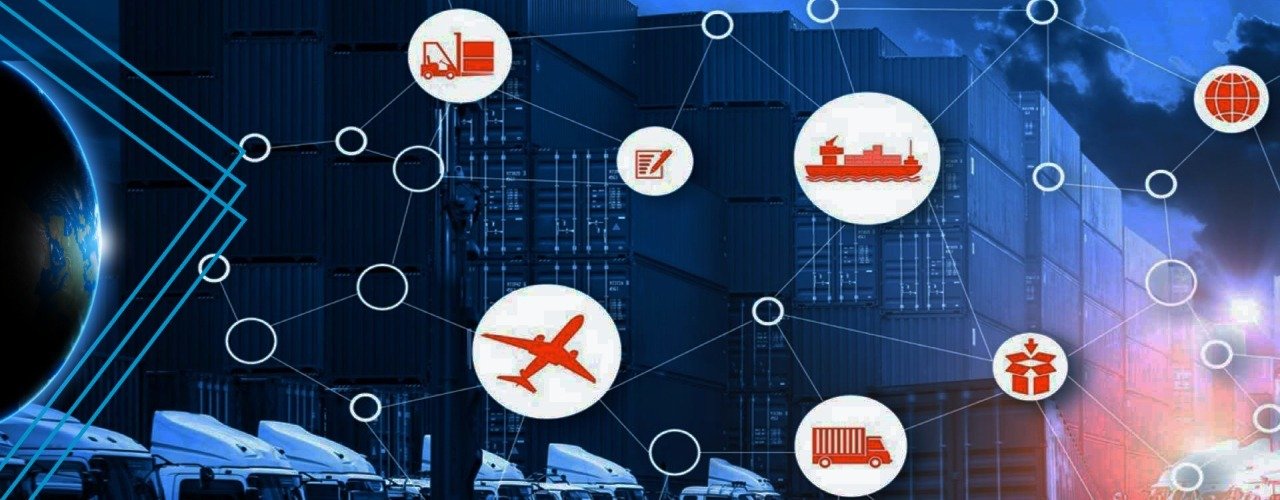
The future of freight forwarding technology appears promising, marked by ongoing advancements in automation, artificial intelligence (AI), the Internet of Things (IoT), blockchain, and environmental sustainability practices.
A significant trend on the horizon is the growing utilization of autonomous vehicles and drones for freight transportation. These innovations hold the potential to reduce costs and enhance delivery speed, especially in remote or challenging-to-access regions.
Another area of expansion lies in the application of AI and machine learning to optimize freight routing and improve supply chain visibility. These technologies enable freight forwarders to forecast demand more accurately, trim transportation expenses, and enhance overall operational efficiency.
The Internet of Things (IoT) is anticipated to play an increasingly vital role in freight forwarding. Its implementation will enable real-time tracking of shipments, monitoring of temperature and humidity levels, and predictive maintenance for equipment, fostering proactive decision-making.
Furthermore, blockchain technology is poised to revolutionize the field of freight forwarding by providing a secure and transparent platform for tracking goods, facilitating payment management, and enforcing contracts.
Lastly, the industry’s pursuit of heightened environmental sustainability is driving innovation in areas such as electric vehicles, renewable energy sources, and smart infrastructure. These advancements align with the global push for greener practices and a reduced carbon footprint.
As the world becomes more interconnected and digitalized, freight forwarding technology will continue to evolve, offering new opportunities for enhanced efficiency, cost savings, and sustainability practices.


